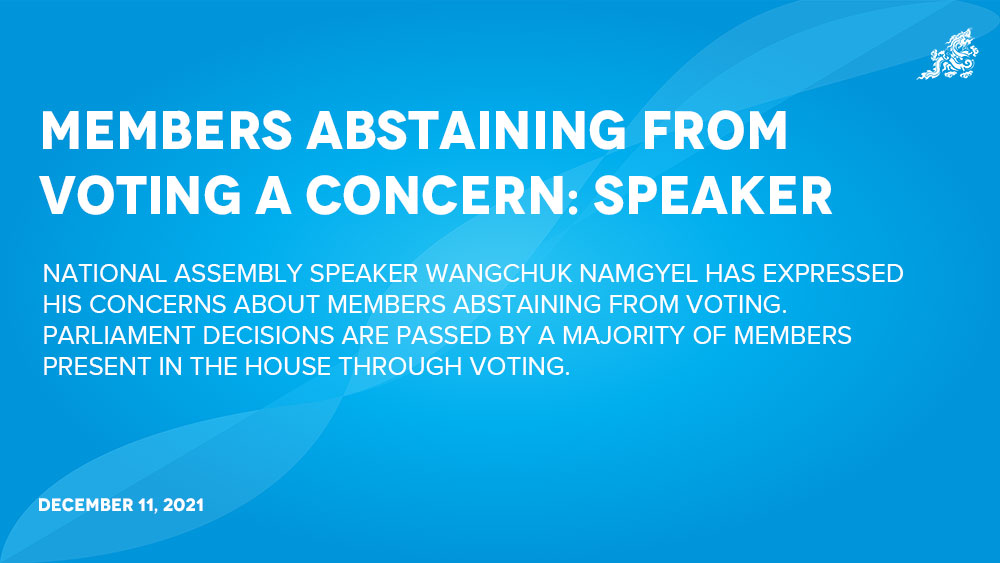MB Subba
National Assembly Speaker Wangchuk Namgyel has expressed his concerns about members abstaining from voting.
Parliament decisions are passed by a majority of members present in the House through voting.
Seven members of the House abstained on December 6 when a motion to enhance the efficiency, effectiveness, and adequacy of agricultural marketing was put to a vote.
Members were asked to vote after debating for about an hour and a half.
Speaker Wangchuk Namgyel said that deliberations would be fruitful only if all the members present voted. “It’s a matter of concern for me.”
The motion had come from Kengkhar-Werengla MP Rinzin Jamtsho, who stated that the government needed to amend the current agricultural marketing system into a “productive and efficient” one.
He also proposed in the House that the country’s import and export policy be made clear and a market established with countries with which Bhutan has bilateral relations.
He claimed that all the members who abstained from voting were from the Ruling Party.
The motion, however, was passed with a majority vote 33 ‘Yes’ votes out of 41 members present. One voted ‘No’.
According to members, normally only a few members abstained in the past. Members who abstain are treated as present in the House but not voting.
However, a ruling party MP said that it was a member’s right to abstain. “The member’s indecision is one reason.”
Agriculture Minister Yeshey Penjor said the government had already developed such a strategy. He said that the government had recently held discussions on agriculture trade with India to promote the export of agricultural products.
Meanwhile, with about 10 working days left for the session to conclude, the need for equal representation of constituencies in the House has been felt.
A close observer of parliamentary debates said that more active participation of members was required to make debates inclusive and legislation better.
“Some MPs rarely take the floor while it is the same MPs who contribute to most of the debates.”
He said that members generally took party lines while debating and voting on motions. “But the quality of debates has improved over the past years.”


